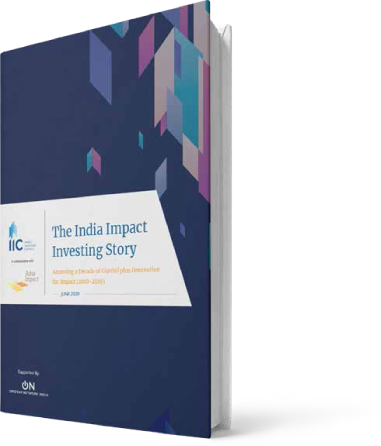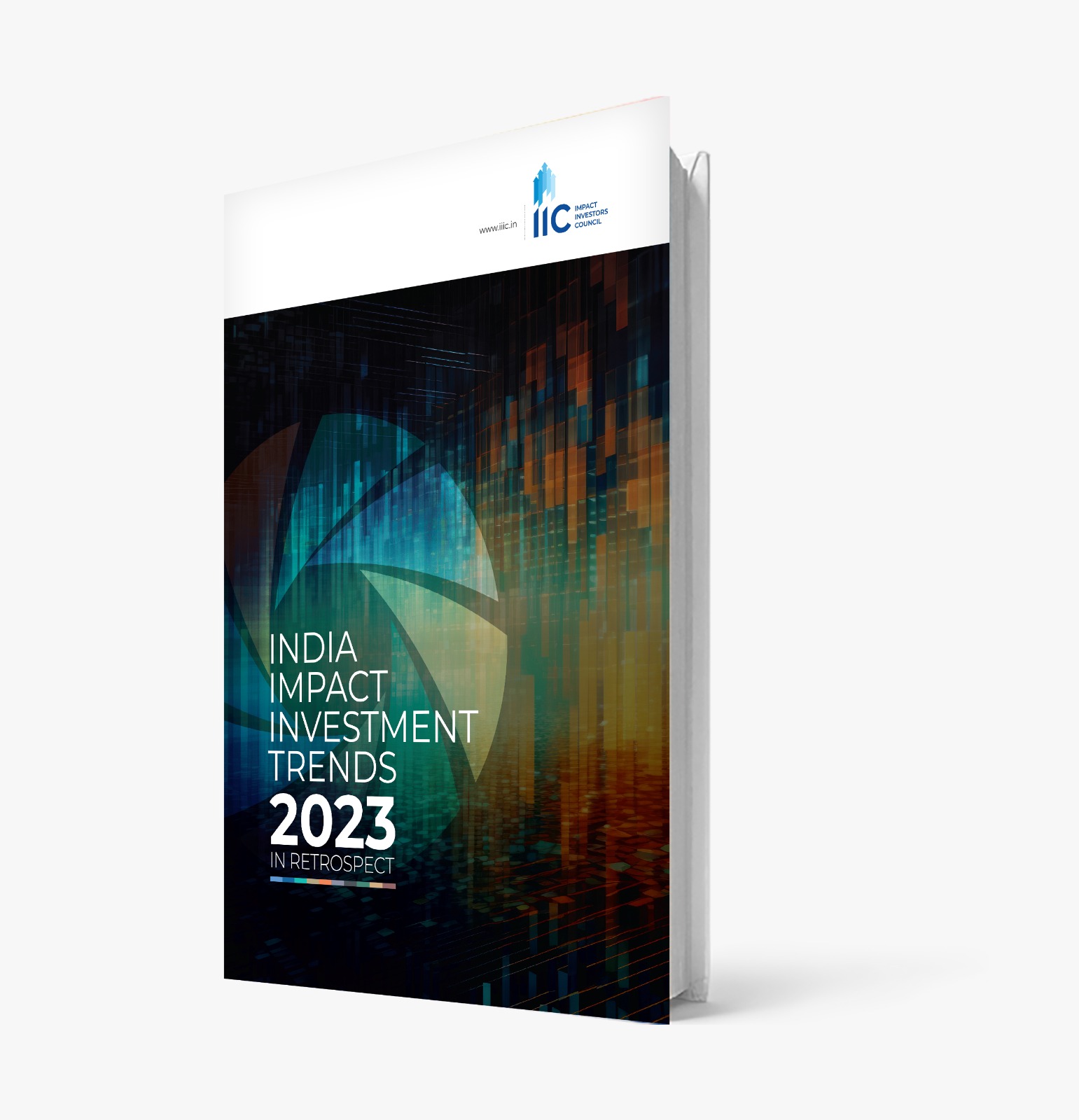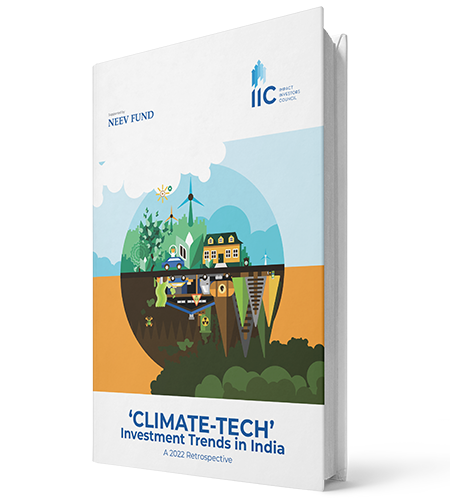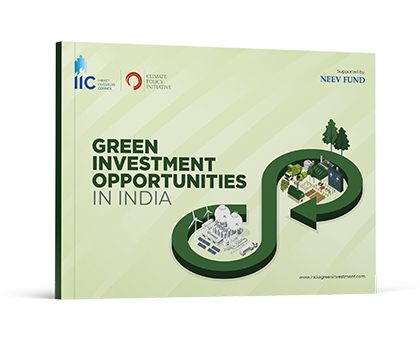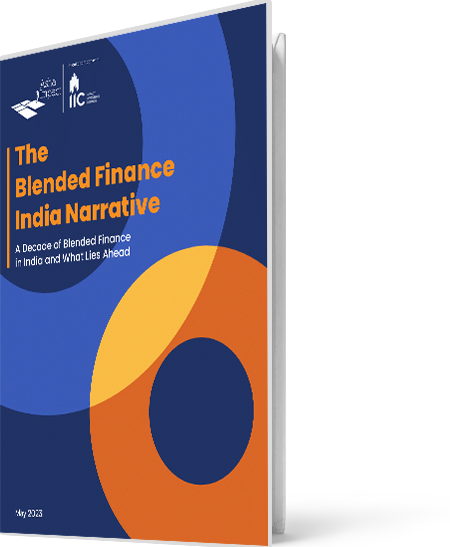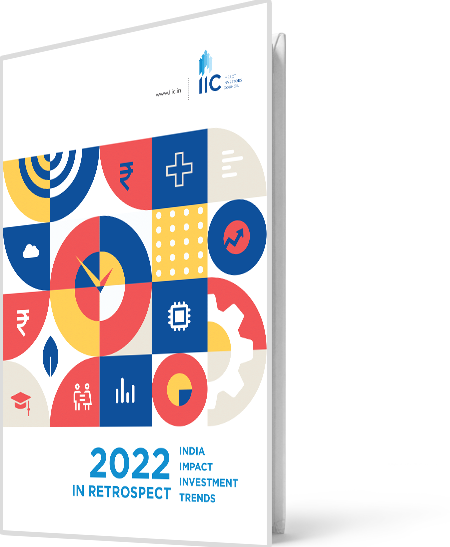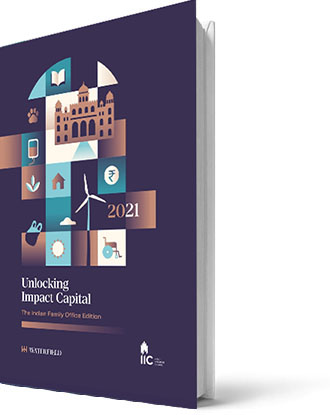Research Publications
India Impact Investing Handbook
The all-in-one handbook attempts to provide a bird’s-eye perspective of the investment opportunity across multiple dimensions of the impact investing market in India (such as Equity, Debt, Gender-lens, Climate-tech, Blended Finance etc.) through a combination of grounds-up IIC database analysis and insights from key industry practitioners.


Unlocking the Promise of Blended Finance in India
State of Impact NBFCs in India
.
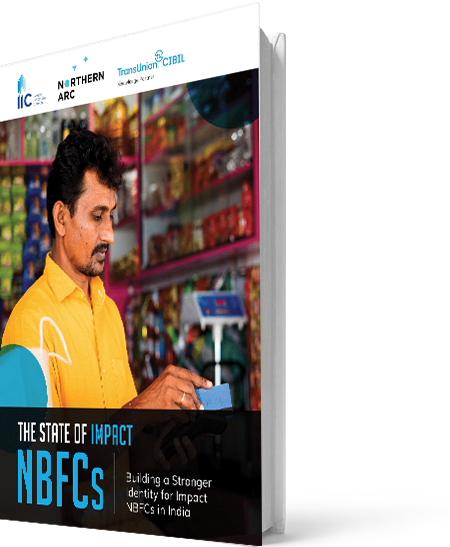
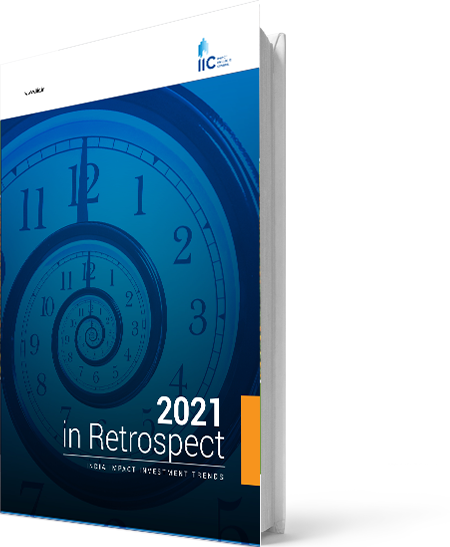
2021 in Retrospect: India Impact Investment Trends
The analysis is based on a bottom-up database of venture deals in social enterprises across all significant impact sectors.
Access IFI Report 2021: The Promise of Blended Finance for Financial Inclusion
Impact Investors Council (IIC) is pleased to share our contribution to the ACCESS Development Services Inclusive Finance India Report 2021 through a chapter exploring blended finance structures in the financial inclusion space. The write-up delineates how innovative asset-based, liability-based and pay-for-success structures (such as impact bonds) can strengthen NBFC balance sheets and solve pressing challenges in critical sectors where a lack of credit is hampering India’s economic growth.
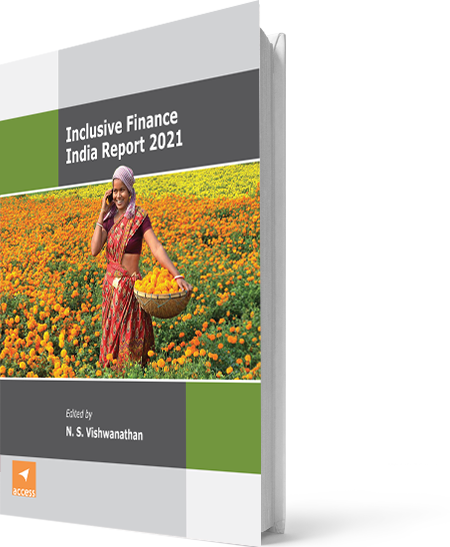
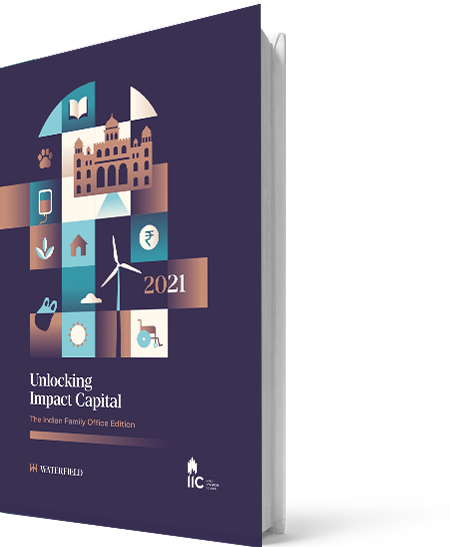
Unlocking Impact Capital – The Indian Family Office Edition
Early-stage Climate-tech Startups in India: Investment Landscape Report 2021
Early-stage Climate-tech Startups in India: Investment landscape 2021 is an endeavour by the Impact Investors Council, Climate Collective and Areté Advisors to spotlight the activity in the Indian climate tech ecosystem over the last five years. The report serves three key objectives –
- To deconstruct and adequately socialize the landscape of less understood solutions and innovative business models that characterize the current wave of climate-tech activity in the country.
- To pave the way towards a unified taxonomy for the ecosystem that can help leap-frog space in response to the growing climate crisis.
- To provide detailed recommendations and insights from industry players which can help climate-related start-up investments become mainstream.
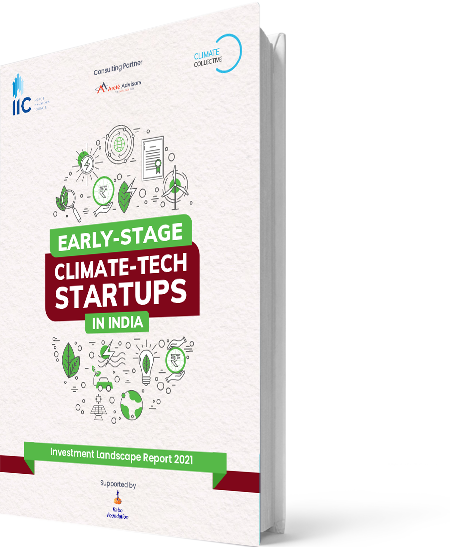
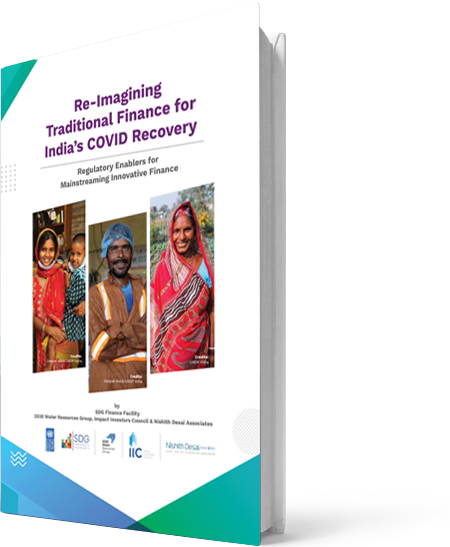
Re-Imagining Traditional Finance for India’s COVID Recovery
COVID-19 is an unprecedented health and development crisis. The efforts required to contain its spread by curtailing movement to limit exposure have severely impacted lives and livelihoods and stalled economic activity. While a significant amount of capital has been deployed by the Government, there is scope to do more. Commercial mainstream capital can fill this funding gap, provided opportunities are appropriately structured and the risk return profile is aligned. Blended finance involves using philanthropic or concessionary funds to de-risk investments in order to attract commercial capital. This catalytic approach leads to a leveraging effect where every rupee of grant money deployed attracts many multiples of commercial capital.
Key focus areas of the report are:
- Blended finance solutions for addressing the credit crunch faced by MSMEs and small holder farmers and enhancing the employment prospects of India youth through strategic skill development.
- Insights into the legal obstacles facing blended finance, drawn from live deals being structured in the Market
- Recommendations for legal revisions in laws such as Income Tax, GST and CSR that would allow for quick and large-scale disbursal of capital through blended financial deals.
2020 in Retrospect: India Impact Investment Trends
India Impact Investors Council (IIC) released its annual report “2020 in Retrospect: India Impact Investment Trends” on 15th February 2021. The report reveals that Impact enterprises received ~$2.6BN in investment across 243 equity deals and saw 13 successful exits in the calendar year (CY) 2020. One clear conclusion from the report is that despite the global health pandemic and its accompanying effects on the business and economic environment, impact investors have pledged their support to solving critical social and environmental challenges through investments in scalable, tech-based, innovative impact enterprises.
The analysis is based on a bottom-up database of venture deals in social enterprises across all significant impact sectors.
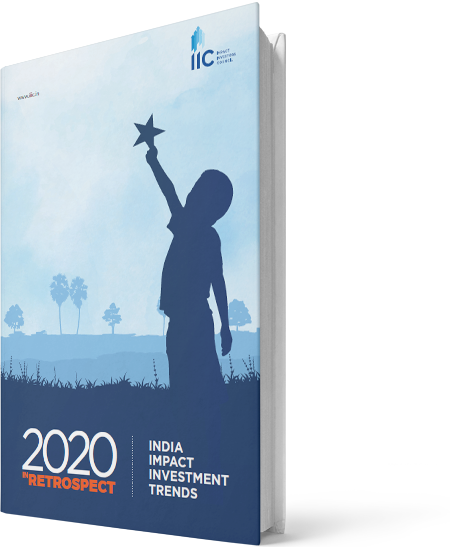
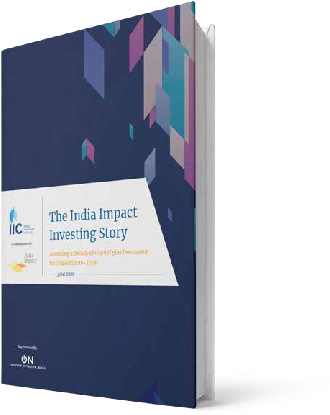
The India Impact Investing Story
Assessing a Decade of Capital Plus Innovation for Impact (2010-19)
A comprehensive report on the Indian impact sector over the last decade looking at the nature of capital flows and business models, and assessing the cumulative impact of the industry. The aggregation study attempts to quantify and showcase the cumulative power of the impact created and also celebrate the great stories of innovation that the industry has spawned.
Giving Credit Where Due:
A Case for Debt Financing in Indian Impact Enterprises
Debt financing has grown in India, but at only 25 percent of total investing, Indian impact enterprises struggle to find the working capital they need to grow and fulfil their potential. To better understand the challenges impact enterprises face in borrowing money, the India Impact Investors Council and The Bridgespan Group joined in this research project to chart the debt landscape, identify barriers to debt financing, and propose ways to make debt more accessible.
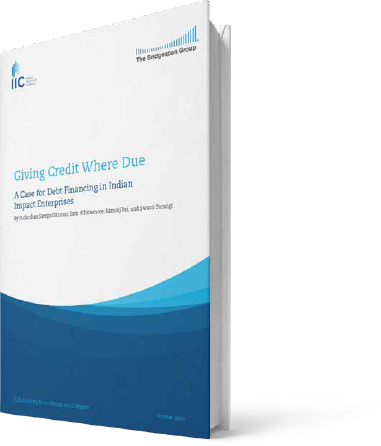
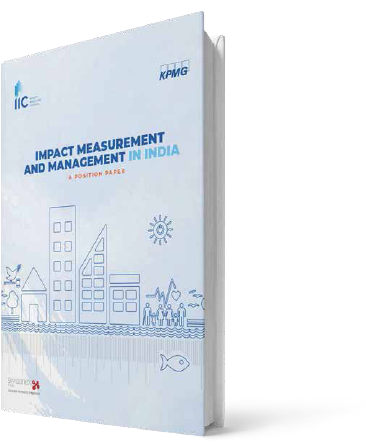
Impact Measurement and
Management in India:
A Position Paper
Impact Measurement and Management (IMM) is the ‘cornerstone’ of impact investing. The measurement of impact performance is crucial as impact investors scale-up financing to achieve the United Nations’ SDGs. With impact investing all set to become mainstream in the post-COVID world, ‘impact performance’ is bound to evolve as a new dimension to evaluate the performance of all types of investments. IIC and KPMG India undertook an industry-wide survey of Impact Investors active in India in an attempt to capture the baseline state of IMM practices in the country. The report provides insights on current Indian IMM industry practices.
The Promise of Impact investing in India
With an active social enterprise space and an engaged investment market, impact investing takes advantage of private sector efficiency and capital to achieve public sector goals. With this report, we aim to provide an analysis of the impact investment sector in India and its potential to achieve social good. The study brings together wide-ranging analyses undertaken between February 2018 and April 2019. Structured around four key tenets of impact investment market activity — market trends in India, sector-level analysis, innovative financing and measurements— it takes the reader through the major trends that have shaped the Indian impact investment environment and offers specific recommendations. A special focus is placed on the key social themes of health, education and agriculture.
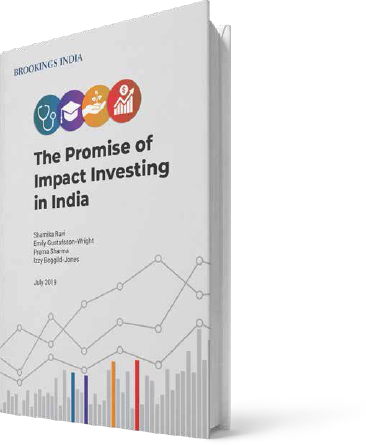
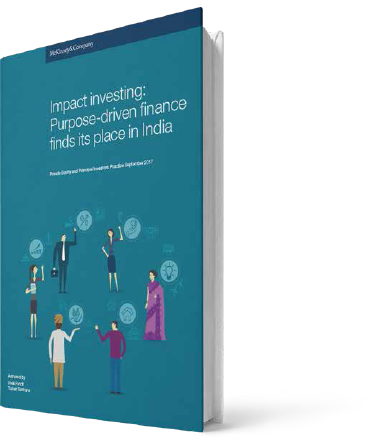
Impact investing: Purpose-driven finance finds its place in India
Rising demand for socially responsible and purpose-driven finance has resulted in new ways of putting capital to work the world over. In the past decade, what is now known as “impact investing” has challenged the long-held view that social returns should be funded by philanthropy and financial returns should be funded by mainstream investors.
The global market for impact investments is projected to grow to $300 billion or more by 2020, according to the Global Steering Group on Impact Investment. Although this is still a fraction of the total private-equity assets under management (about $2.5 trillion in 2016), mainstream investors have entered the arena and are bringing scale to what was earlier considered a niche. And the dialogue is shifting rapidly from impact investing to “investing for impact.”
India is fast becoming a test bed for many of these activities. Between 2010 and 2016, India attracted over 50 active impact investors, who poured in more than $5.2 billion. About $1.1 billion was invested in 2016 alone. We hope this report will give readers a sense of how impact investing is developing in India, and debunk some myths that have long surrounded these investments.

